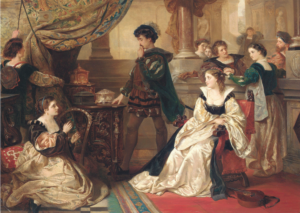“I’ll have no worse name than Jove’s own page, / And therefore look you call me Ganymede.” (2.1.122-3). In Shakespeare’s play As You Like It, Rosalind utters these lines to proclaim here new undercover identity as she goes to the Forest of Arden. But Ganymede is not just any old name; it has a long history rooted in mythology and is often associated with homosexuality. Also, Rosalind is the daughter of a banished duke and thus an aristocratic figure, yet Ganymede is a “page”, or servant.
This begs the question, why does Shakespeare choose the name Ganymede to be Rosalind’s alter ego?




